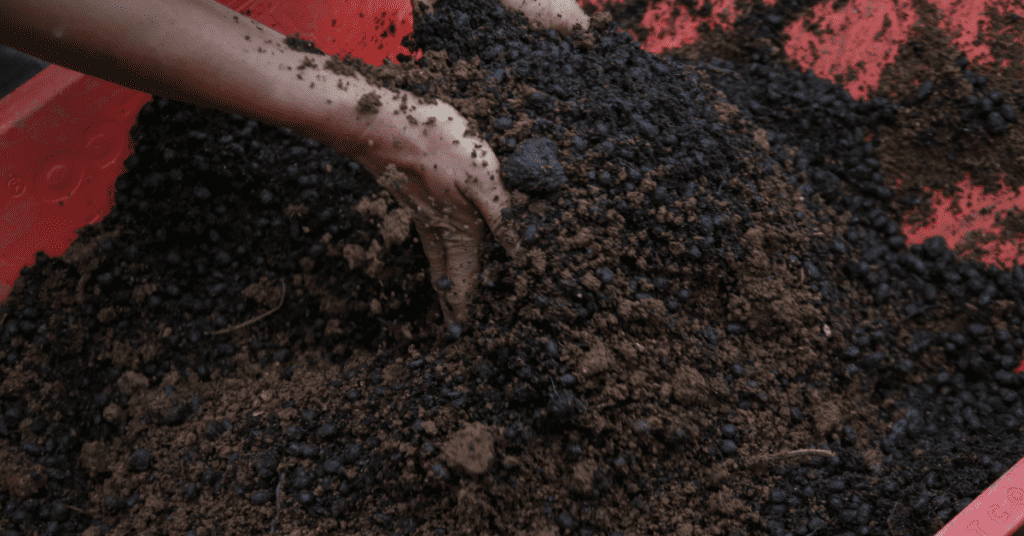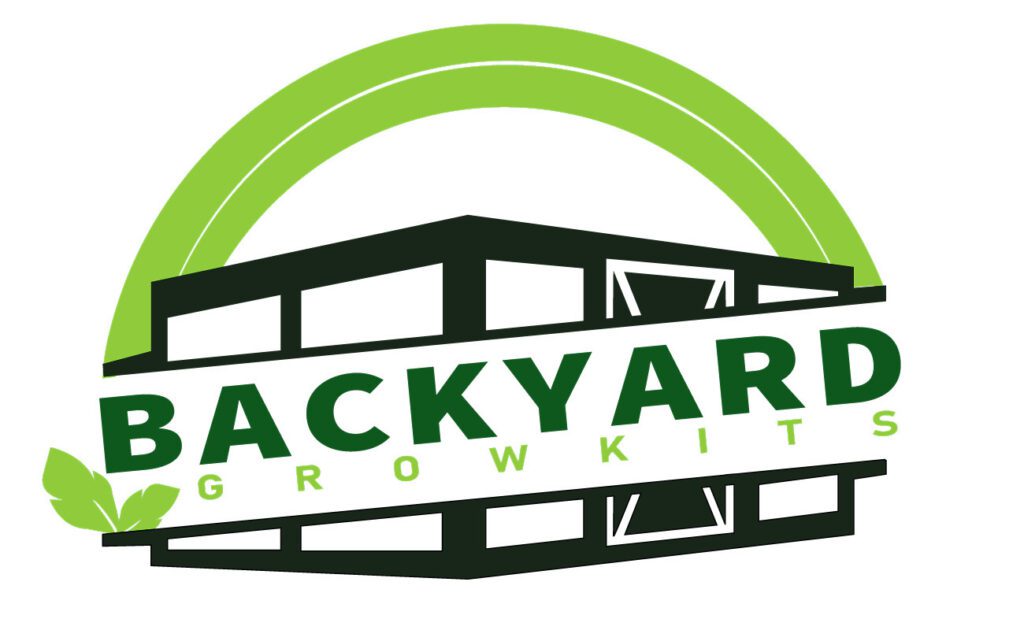Organic gardening is growing plants and vegetables without synthetic fertilizers, pesticides, or genetically modified organisms (GMOs).
Instead, it uses natural methods to promote soil health and plant growth. This includes compost, crop rotation, companion planting, and natural pest control methods.
Organic gardening is not only better for the environment, but it also produces healthier and more flavorful produce.
It is also a great way to connect with nature and enjoy the satisfaction of growing your own food.
Benefits of Organic Gardening
Environmental sustainability: Organic gardening promotes sustainable farming practices by avoiding synthetic pesticides, herbicides, and fertilizers. Instead, it relies on natural methods to maintain soil fertility and combat pests, such as composting, crop rotation, and biological pest control. This helps protect soil quality, preserve biodiversity, and maintain a healthier ecosystem.
Healthier soil: Organic gardening focuses on building and maintaining healthy soil. Organic gardeners enrich the soil with organic matter, such as compost, manure, and cover crops. This enhances soil structure, fertility, and water-holding capacity. Healthy soil supports robust plant growth and provides essential nutrients, producing healthier and more nutritious produce.
Chemical-free produce: Organic gardening prioritizes using natural alternatives to synthetic chemicals. By avoiding synthetic pesticides and herbicides, organic gardeners reduce the risk of chemical residues on fruits, vegetables, and herbs. This means that organic produce is generally safer to consume and reduces potential health risks associated with chemical exposure.
Enhanced nutritional value: Research suggests that organic fruits and vegetables can have higher nutrient content compared to conventionally grown counterparts. Organic farming practices, such as soil enrichment and the absence of synthetic inputs, contribute to increased levels of vitamins, minerals, and antioxidants in organic produce, potentially providing greater nutritional benefits.
Improved taste and flavor: Many gardeners and consumers report that organic produce has better taste and flavor than conventionally grown counterparts. Organic gardening focuses on soil health, enhancing the quality and flavor of fruits, vegetables, and herbs. The absence of chemical residues may produce a purer, more authentic taste.
Water conservation: Organic gardening methods, such as mulching and proper watering techniques, help conserve water. Mulching helps retain soil moisture, reducing the need for frequent irrigation. Additionally, organic practices improve soil structure, allowing it to hold more water and reducing runoff, conserving this precious resource.
Support for pollinators and beneficial insects: Organic gardens often create a more favorable habitat for pollinators, such as bees, butterflies, and birds, by providing a diverse range of flowering plants and avoiding harmful chemicals. By attracting and supporting pollinators, organic gardening contributes to the health of ecosystems and ensures the pollination of plants, including food crops.
Sustainability and self-sufficiency: Organic gardening can be practiced on various scales, from small backyard plots to community gardens and larger farms. Growing your own organic food can reduce reliance on industrial agriculture, contribute to local food security, and promote self-sufficiency. It gives you greater control over the quality and safety of your food.
How to Prepare Your Soil for Organic Gardening
Preparing the soil is crucial in organic gardening, as it sets the foundation for healthy plant growth and productive yields. Here are some steps to help you prepare your soil for organic gardening:
Test the soil: Test your soil to assess its pH level and nutrient content. Soil testing kits or services can provide valuable information about the soil’s composition and any deficiencies or imbalances. This knowledge will guide you in making appropriate amendments.
Add organic matter: Organic matter is the key to building fertile soil. Add compost, well-rotted manure, leaf mold, or other organic materials to enrich the soil. Spread a layer of organic matter (about 2 to 3 inches deep) over the entire garden area. Work it into the top 6 to 12 inches of soil using a garden fork or tiller. This improves soil structure, moisture retention, and nutrient availability.
Mulch the soil: Apply a layer of organic mulch, such as straw, wood chips, or leaves, on top of the soil. Mulching helps suppress weeds, retain soil moisture, regulate temperature, and prevent erosion. It also gradually breaks down, adding organic matter to the soil.
Practice crop rotation: Implementing crop rotation helps prevent the build-up of pests and diseases specific to certain plant families. Rotate crops by planting them in different areas each year. For example, follow a nitrogen-demanding crop like corn with a legume crop like beans that enriches the soil with nitrogen.
Implement green manure cover crops: Planting cover crops, also known as green manure, is an effective way to improve soil fertility and structure. Cover crops like clover, vetch, or buckwheat are sown during fallow periods or as a winter cover. They help fix nitrogen, suppress weeds, prevent soil erosion, and add organic matter when tilled into the soil.
Avoid synthetic chemicals: Organic gardening prohibits synthetic fertilizers, pesticides, and herbicides. Instead, rely on natural alternatives. For example, use compost or organic fertilizers to provide nutrients and introduce beneficial insects, like ladybugs or lacewings, to control pests naturally.
Practice no-till or minimal tillage: Excessive tilling disrupts soil structure and beneficial microorganisms. Consider adopting a no-till or minimum-tillage approach to preserve soil health. Use hand tools or a small trowel for planting instead of tilling the entire garden bed.
Maintain proper watering: Provide adequate water to your plants, considering their specific needs. Water deeply and less frequently to encourage deep root growth. Use drip irrigation or soaker hoses to deliver water directly to the plant roots, minimizing evaporation and water waste.
Regularly add organic amendments: Replenish the soil with organic matter and amendments as you garden. This could include compost, well-rotted manure, worm castings, or organic fertilizers. These additions help maintain soil fertility and support long-term soil health.
Organic Gardening Techniques
You can use many different techniques in organic gardening to promote plant growth and health. One of the most important is crop rotation, which involves planting different crops in the same area each year to prevent soil-borne diseases and pests. Another technique is companion planting, which involves planting certain plants together to promote growth and deter pests. For example, planting marigolds alongside tomatoes can help keep pests like nematodes away.
Choosing the Right Plants for Your Organic Garden
Choosing the right plants for your organic garden is essential to its success. You should select plants that are well-suited to your climate and soil type and resistant to common pests and diseases.
You should also consider the amount of space you have available and the amount of sunlight and water your plants will need.
Some great plants for organic gardening include tomatoes, cucumbers, peppers, lettuce, and herbs such as basil and thyme.
Companion Planting in Organic Gardening

Companion planting is a technique that involves planting certain plants together to promote growth and deter pests.
This can be done by planting plants with different root depths, which can help prevent soil-borne diseases and pests.
For example, planting carrots with onions can help deter pests like carrot flies. You can also plant plants known to repel pests, such as marigolds, which can help keep nematodes away.
Organic Pest Control Methods
Organic pest control methods are essential to maintaining a healthy and productive organic garden. This includes using natural methods such as handpicking pests, introducing beneficial insects, and using natural pesticides such as neem oil or insecticidal soap.
You can also use physical barriers such as row covers or netting to keep pests away from your plants. Additionally, you should regularly inspect your plants for signs of pest damage and take action as soon as possible to prevent further damage.
Organic Fertilizers and Composting
Organic fertilizers and composting are important components of organic gardening. Instead of synthetic fertilizers, you can use natural fertilizers such as compost, manure, or fish emulsion to promote plant growth.
Composting is also a great way to reduce household waste and create nutrient-rich soil for your plants. You can compost various materials, including fruit and vegetable scraps, coffee grounds, and yard waste.
Harvesting and Preserving Organic Produce

Harvesting and preserving your organic produce is an important part of organic gardening. You should harvest your produce when it is ripe and most flavorful and nutritious.
You can also preserve your produce by canning, freezing, or drying it. This will allow you to enjoy organic produce throughout the year and reduce reliance on store-bought produce.
Common Mistakes to Avoid in Organic Gardening
There are several common mistakes that gardeners make when starting an organic garden. One of the most common is overwatering, which can lead to root rot and other plant diseases.
Another mistake is not planting diverse crops, which can lead to nutrient deficiencies and soil-borne diseases.
Additionally, synthetic fertilizers or pesticides can undermine the benefits of organic gardening and harm the environment.
Parting Remarks on Organic Gardening
Organic gardening is an incredibly rewarding practice that can benefit the environment and your health.
By following the tips and techniques outlined in this guide, you can unleash the power of organic gardening and enjoy the satisfaction of growing your own food.
Whether you are a seasoned gardener or just starting out, there is no better time to start an organic garden and experience the joys of this incredible practice.

